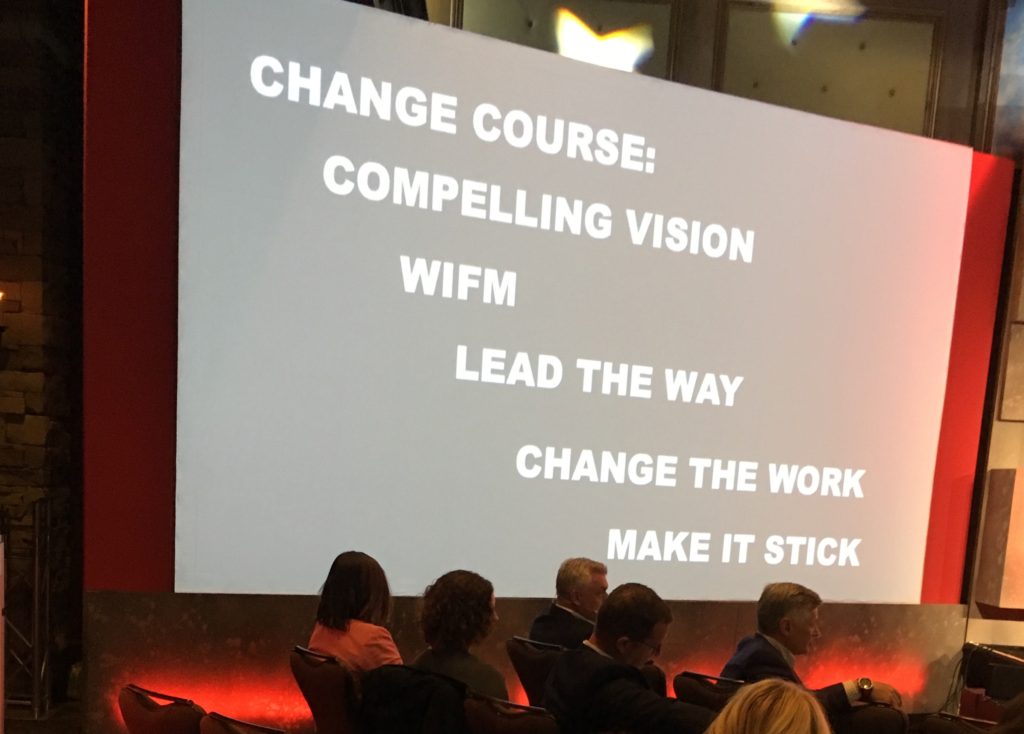Okay, the last post from HireVue’s Digital Disruption, but it was something I had to share! TA leader Molly Weaver at Children’s Mercy Hospital in Kansas City is killing the game! If you do an interview with Children’s on the HireVue platform, they have actual kid patients ask you the interview questions via video!
I shared one on Twitter this week under the #VueDD17 stream and I haven’t been able to get those actual videos to share, but here’s one you can get a taste of how Children’s recruitment marketing is just amazing:
You’re in 2017. Molly and the TA team at Children’s is in 3017!
Seriously, talk about driving culture through your hiring process! It’s hard not to get emotional watching these kids ask you screening questions and then you have to go answer it!
This one single idea is the best recruitment marketing I’ve seen in years.
Imagine how you could take and use this idea in your own TA shop. Casual dining, go have actual guests ask the questions for your server screening questions. Get some half-drunk guy at the bar to ask bartender questions! (okay, just kidding!)
Go connect with Molly, she’s a brilliant TA leader and if you’re at CHRO in healthcare with a crappy TA team, back up a dump truck of cash on Molly’s door and talk her into coming over to your team!
Besides transforming their screening and interviewing, Molly’s team also added in HireVue’s “Introduce Yourself” tool that gives every possible candidate to your organization the ability to tell you who they are and why you should hire them.
Molly had some awesome stories of finding and hiring candidates from this tool that they might never have found without it. Some of these folks applied to jobs at Mercy several times and never made it past the first stage. Also, an amazing 28% of these hires were diverse candidates!
Before you say you don’t have the resources to do all this awesome stuff, know that Molly and her team did this on a shoestring budget! Found the kids on their own, filmed them, kept it as real as possible, and it’s brilliant!
Really amazing stuff, I’m starting the Molly Weaver fan club, let me know if you want in!

